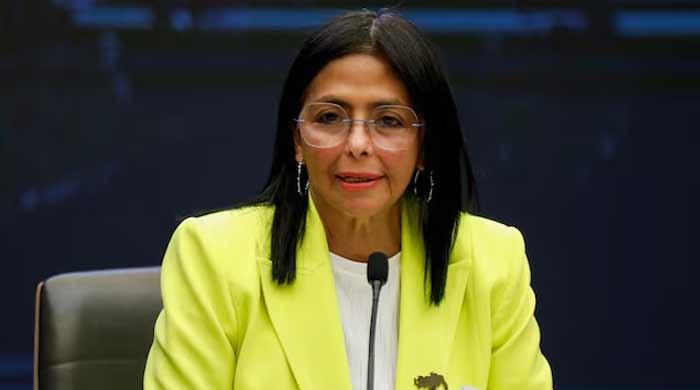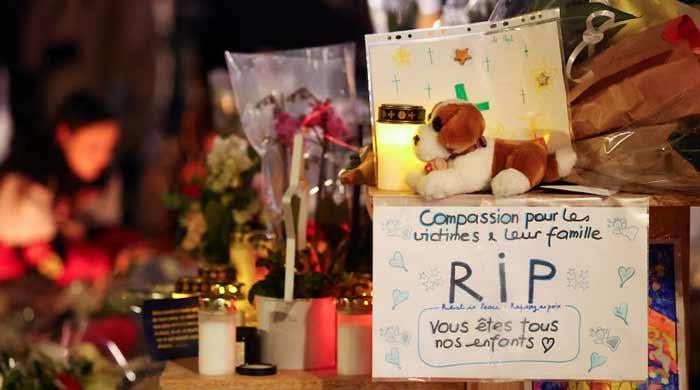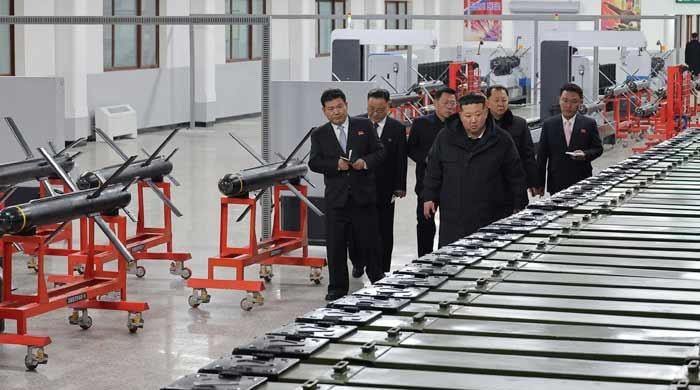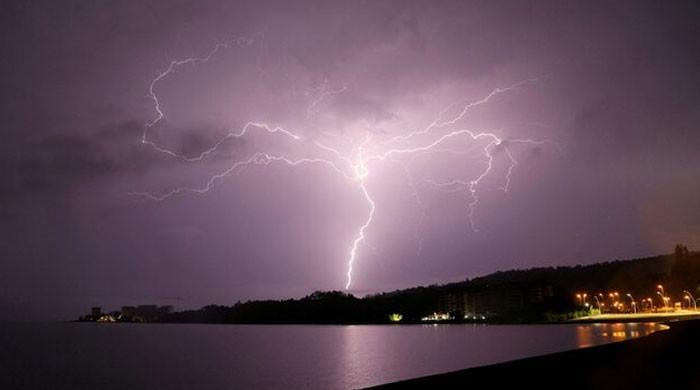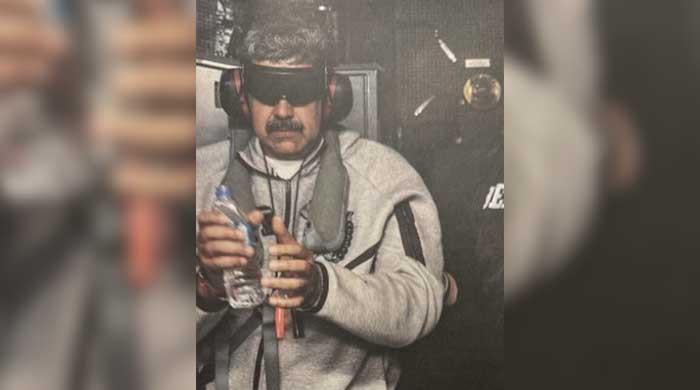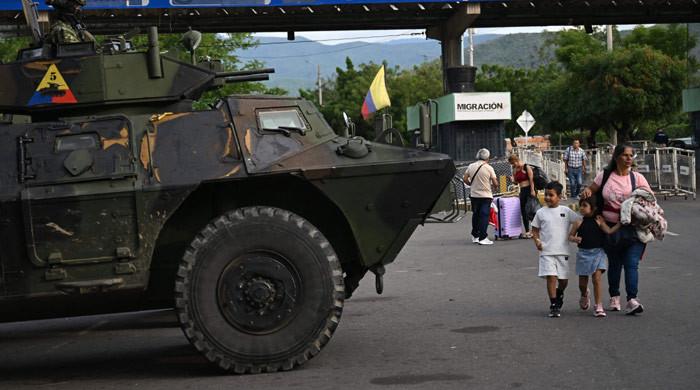How Wagner chief Prigozhin goes from 'Putin's chef' to 'a stab in his back'
Putin criticises actions as "treason" and "mutiny," referring to "favourite chef" who took control of Russian military headquarters, pledging to march the battle to Moscow
June 24, 2023
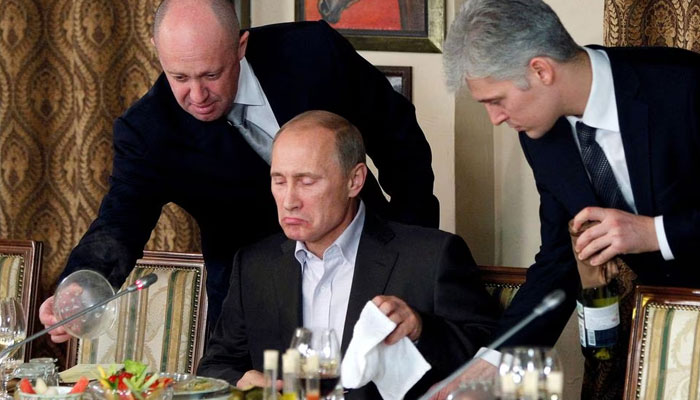
Formerly elusive, Yevgeny Prigozhin is now a vocal opponent of Putin's government and the Russian military. As a "mutiny" breaks out in Russia, this has resulted in a violent confrontation between the two.
The oligarch has declared a "armed rebellion" against Russia while dressed in military battle gear, which has caught the attention of the entire world. A Russian missile attack on their training camp in Bakhmut resulted in numerous fatalities, which led to the Wagner uprising.
The Wagner group took control of a Russian military headquarters in Rostov-on-Don and possibly military facilities in the city of Voronezh on Prigozhin's orders, pledging to march the battle to Moscow. Putin referred to the action as "treason" and "mutiny" and described it as "a knife in the back of our people."
This person, who is referred to as "Putin's favourite chef," has been working hard to advance their status within the Kremlin.
He is aiming for the top position, according to experts' predictions. Last month, Colonel Hamish de Bretton Gordon told The Sun Online that "Prigozhin seems to be letting his guard down right now.
He also has an army that could march into the Kremlin and seize power, almost in a Roman manner. This assertion almost accurately predicted recent events.
His rise to power seems to have everything to do with his ambition and murky past, which he conducted in the backrooms of the Kremlin while riding the waves of Putin's favour.
Once a gangster, he is now one of Russia's most powerful men, with a private army of over 50,000 men stationed in Ukraine alone, and a fortune that is believed to be worth millions, if not billions.
The paid killer group he founded in 2014 acts as a de facto militia in some of Ukraine's bloodiest battles and is equal in strength to a quarter of Russia's entire army.
As Russia invaded Ukraine in February, Prigozhin stepped out of the shadows to wage war on Ukraine with his private military outlet, taking the leading role in the bloody battle for Bakhmut.
Kremlin power battle
As Prigozhin intensifies his criticism of senior Russian military officers and issues covert threats against Putin, his reckless behaviour has grown more brazen. He then claimed sole ownership of Russia's purported capture of Bakhmut, disregarding the participation of any Russian forces in the conflict.
Despite defying the Russian propaganda machine, Prigozhin has exposed the country's issues on the battlefield time and time again.
This week, he claimed that Putin is being lied to by Russia's military top brass about "colossal" Russian battlefield failures in Ukraine and warned that the head of Russia's army, Valery Gerasimov, and the defence minister, Sergei Shoigu, are downplaying the threat posed by Ukraine's counteroffensive.
Rise of the warlord
In 1981, after being accused of robbery and assault, Prigozhin was sent to a Soviet Russian penal colony, which marked the beginning of his rise to power. Involved in organised crime, he opened a convenience store and chain of restaurants after being released from prison and began selling hot dogs on the streets of St. Petersburg.
After meeting Putin in 2001, Prigozhin's catering company received lucrative state contracts to feed Russia's schools and military. He amassed great wealth, leading a lavish lifestyle, and was accused of meddling in the US 2016 elections by bankrolling Russian propaganda-pumping troll farms, landing him on the FBI's "most wanted" list.
"The war in Ukraine changed everything," according to Dr Huseyn Aliyev, an expert on Russia and the conflict in Ukraine. Prigozhin emerged from the shadows to assert his claims, becoming one of the typical Putin-era power brokers, and one of the few survivors of the upper echelons of Putin's inner circle.
He has pushed himself to the front and proved capable of pushing forward with Russia's offensive, just as Putin is disillusioned by his generals. Prigozhin's long play for power has been obvious and risky, moving up the ranks by criticising senior generals and building up his own reputation.
Bill Browder, an investor and enemy of Putin, believes Prigozhin will seize power, as he is not someone who would respect power. Prigozhin is carving his place into the Putin regime, and it's remarkable that they allow him to say such things against Putin. He's defying everything, and his defiance has now reached new levels as Wagner groups storm two Russian cities and Putin demands his arrest.
The Wagner empire
The Prigozhin-led Wagner Group, known for its eerie black insignia, continues to carry out atrocities throughout Ukraine. Prigozhin got his start with the Wagner Group in Crimea in 2014 and later in nebulous proxy conflicts across Africa and the Middle East, gathering UN accusations of war crimes and egregious human rights violations.
Damning messages and photos have recently shown the chilling reach of the Wagner Group and their terrifying ambitions for a new Russian empire. Encrypted channels on messaging app Telegram supported accusations that Wagner has been active in Africa and Asia, and hints they could be operating in Asia and Latin America.
However, as Wagner stages their current rebellion in Russia, Putin has brandished them "criminals" committing "treason," while Prigozhin has called his forces "patriots" of Russia.
General Sir Richard Barrons, former head of Joint Forces Command, has blasted Prigozhin as "crazy" for his attempted armed uprising, which will deal a major "psychological blow" to Putin. General Barrons doubted that Wagner will be able to seize Moscow, but the more important impact is the massive "fracture" it ripped open in the Russian military and political leadership.




